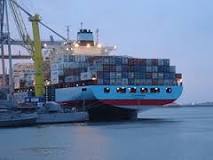Global pollution is reaching extreme levels, so much so that a number of measures are being taken around the world to try to curb this situation. This is the case with the new IMO 2020 standard, adopted by the International Maritime Organization (IMO), which requires a reduction in sulphur oxide emissions from ships around the world.
The International Maritime Organisation has made it clear that there will be no extensions and from 1 January 2020, massive checks will be carried out to ensure compliance with the new global rules.
Various solutions have been put in place to enable ships to adapt and comply with this new regulation.
One optionThe Commission will be able to start using a fuel with a maximum sulphur content of 0.5%.
Another possible option would be to choose a fuel with more sulphur, but with exhaust gas cleaning systems, known as scrubbers, which clean these gases before they are released.
Finally, there is also the possibility of using other fuel alternatives such as liquefied natural gas or one of those catalogued as clean fuels.
The MEPC, for its part, has established some guidelines to enable operators and shipowners to minimise the impact of the implementation of this legislation. These guidelines are directly oriented with aspects such as mitigation measures and risk assessment, such as establishing the fuel change plan, the required documentation, modifications to the oil fuel systems, etc.
As far as sanctions are concerned, the sanctions that will be imposed on ships that do not comply with this rule are still being considered. What does seem clear is that ships exceeding the 0.5% sulphur limit will be paralysed.
Shipping companies will have to make an investment with this new regulation, either to purchase the new authorised fuels, or to adapt the ships they already have. These factors may be reflected in an increase in freight charges. The most common terms for such surcharges are:
-BAF: Bunker Ajustment Factor: fuel fluctuation adjustments
-EBS: Emergency Bunker Surcharge: surcharge depending on the type of container and the route carried out.
-BRC: Bunker Recovery Cost: additional costs for environmental regulatory changes
-BUC: Bunker Contribution: fuel-related surcharge
These factors will have a strong impact on a number of sectors and will lead to a radical change in maritime traffic rules. For more information on the International Maritime Organisation’s website, where you will find an explanation of the aim and full content of this new IMO 2020 standard.
Fuente: Transeop, TIBA, Grupo JSV

